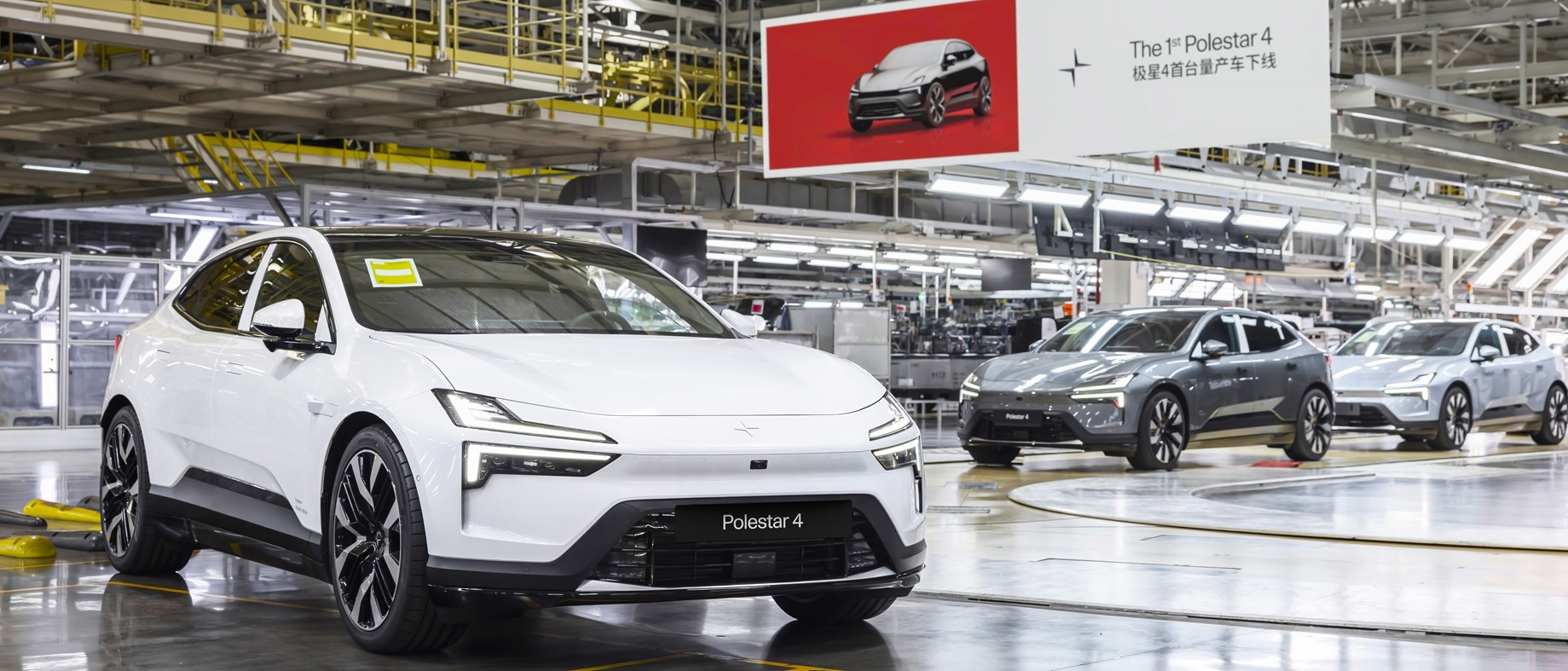The company announced that Renault Korea's Busan plant is rapidly emerging as a vital production facility in the global electric vehicle (EV) market. It plans to manufacture the Polestar 4 at the Busan plant in the second half of 2025.
Polestar, which became an independent EV brand in 2017 after separating from Volvo's high-performance division, has ambitious plans to target the global EV market by sequentially launching exciting models such as the Polestar 2, a mid-size sedan, the Polestar 3, a mid-size SUV, and the Polestar 4, a coupe SUV.
Busan Plant's Advantages and Technical Expertise
Polestar CEO Thomas Ingenlath stated that production was assigned to Renault Korea's Busan factory due to its 23 years of vehicle manufacturing experience, employing over 2,000 skilled technicians, and convenient proximity to the export port, as per Korea Times.
Motor Mouth reported that the vehicles produced here are expected to be exported to North America.
Established in 1997, Renault Korea's Busan factory prides itself on its world-class quality and productivity. In fact, among Renault Group's 20 global car factories, the Busan facility is consistently recognized as a leader in significant production quality management indicators. These include the number of defects per 100 vehicles produced and the number of defects per vehicle shipped from the factory.
Stellar Performance and Recognition
Renault Korea's Busan factory notably produced the Nissan Rogue from 2014 to 2020 for export to North America. This success alleviated Nissan's initial concerns about quality and led to additional orders, further proving the plant's capabilities.
Additionally, the Busan factory received high accolades in the Harbour Report, ranking eighth among global factories in 2016 and sixth in 2018. Published by global consulting firm Oliver Wyman, the Harbour Report compares and analyzes productivity indicators of car factories worldwide and is widely recognized as an industry standard.
The Polestar 4 - Boosting Operations and EV Production Capabilities
With the initiation of Polestar 4 production, Renault Korea expects to enhance the plant's operation rate in the short term while accumulating valuable expertise in their own EV production capabilities in the long run.
Renault Korea's comprehensive electrification campaign is set to kick off next year. The company plans to produce the next-generation electric car at the Busan factory in 2026, starting with the launch of a hybrid SUV, followed by a hybrid sedan.
Photo: Polestar Newsroom



 Amazon Stock Rebounds After Earnings as $200B Capex Plan Sparks AI Spending Debate
Amazon Stock Rebounds After Earnings as $200B Capex Plan Sparks AI Spending Debate  Once Upon a Farm Raises Nearly $198 Million in IPO, Valued at Over $724 Million
Once Upon a Farm Raises Nearly $198 Million in IPO, Valued at Over $724 Million  Hims & Hers Halts Compounded Semaglutide Pill After FDA Warning
Hims & Hers Halts Compounded Semaglutide Pill After FDA Warning  Trump Backs Nexstar–Tegna Merger Amid Shifting U.S. Media Landscape
Trump Backs Nexstar–Tegna Merger Amid Shifting U.S. Media Landscape  Nasdaq Proposes Fast-Track Rule to Accelerate Index Inclusion for Major New Listings
Nasdaq Proposes Fast-Track Rule to Accelerate Index Inclusion for Major New Listings  Ford and Geely Explore Strategic Manufacturing Partnership in Europe
Ford and Geely Explore Strategic Manufacturing Partnership in Europe  Alphabet’s Massive AI Spending Surge Signals Confidence in Google’s Growth Engine
Alphabet’s Massive AI Spending Surge Signals Confidence in Google’s Growth Engine  Rio Tinto Shares Hit Record High After Ending Glencore Merger Talks
Rio Tinto Shares Hit Record High After Ending Glencore Merger Talks  American Airlines CEO to Meet Pilots Union Amid Storm Response and Financial Concerns
American Airlines CEO to Meet Pilots Union Amid Storm Response and Financial Concerns  Sony Q3 Profit Jumps on Gaming and Image Sensors, Full-Year Outlook Raised
Sony Q3 Profit Jumps on Gaming and Image Sensors, Full-Year Outlook Raised  Washington Post Publisher Will Lewis Steps Down After Layoffs
Washington Post Publisher Will Lewis Steps Down After Layoffs  Baidu Approves $5 Billion Share Buyback and Plans First-Ever Dividend in 2026
Baidu Approves $5 Billion Share Buyback and Plans First-Ever Dividend in 2026  Toyota’s Surprise CEO Change Signals Strategic Shift Amid Global Auto Turmoil
Toyota’s Surprise CEO Change Signals Strategic Shift Amid Global Auto Turmoil  SpaceX Prioritizes Moon Mission Before Mars as Starship Development Accelerates
SpaceX Prioritizes Moon Mission Before Mars as Starship Development Accelerates  TSMC Eyes 3nm Chip Production in Japan with $17 Billion Kumamoto Investment
TSMC Eyes 3nm Chip Production in Japan with $17 Billion Kumamoto Investment  Uber Ordered to Pay $8.5 Million in Bellwether Sexual Assault Lawsuit
Uber Ordered to Pay $8.5 Million in Bellwether Sexual Assault Lawsuit 































